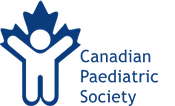Kids’ ice hockey needs restrictions on bodychecking
OTTAWA—Bodychecking in competitive hockey leagues should be delayed until players are in bantam leagues (13 to 14 years old), the Canadian Paediatric Society (CPS) said in a new statement released today.
The CPS is also calling for a ban on bodychecking in recreational (non-competitive) ice hockey for all children and youth, regardless of age.
Bodychecking is the most common cause of injury in youth hockey leagues, where bodychecking is permitted.
“Canadians are passionate about hockey, but we’re concerned about the frequency and severity of hockey-related injuries, especially concussions,” said Dr. Kristin Houghton, member of the CPS Healthy Active Living and Sports Medicine Committee and co-author of the new position statement. “Our hope is that by delaying bodychecking, we can reduce the risk of injury and concussion for the majority of young hockey players.”
Currently, Hockey Canada policy recommends bodychecking be introduced in peewee leagues (11 to 12 years of age). Quebec is the only province that delays bodychecking until the bantam level (13 to 14 years of age).
Bodychecking is not allowed in girls’ or women’s hockey.
“There are many health benefits for children and youth who play hockey,” said Dr. Houghton. “But younger children, and those who are not playing at an elite level, should be able to play in ‘non-bodychecking’ leagues.”
The CPS supports implementing Hockey Canada’s four-stage skills development program for bodychecking for all leagues (body positioning, angling, stick checking, and body contact). Parents and caregivers should learn injury prevention and risk reduction strategies, including concussion prevention, recognition and management.
About the Canadian Paediatric Society
The Canadian Paediatric Society is a national advocacy association that promotes the health needs of children and youth. Founded in 1922, the CPS represents more than 3,300 paediatricians, paediatric subspecialists and other child health professionals across Canada.
Last updated: Nov 2, 2012
